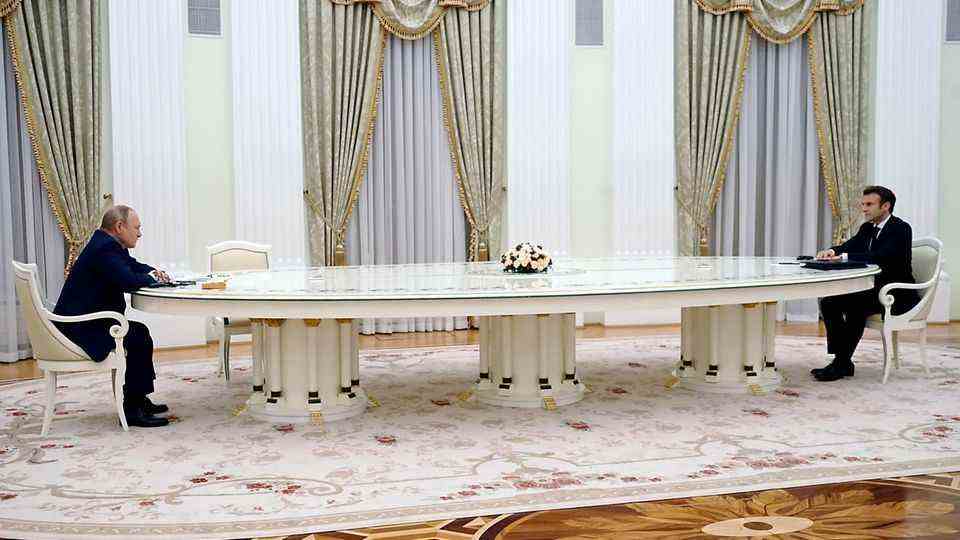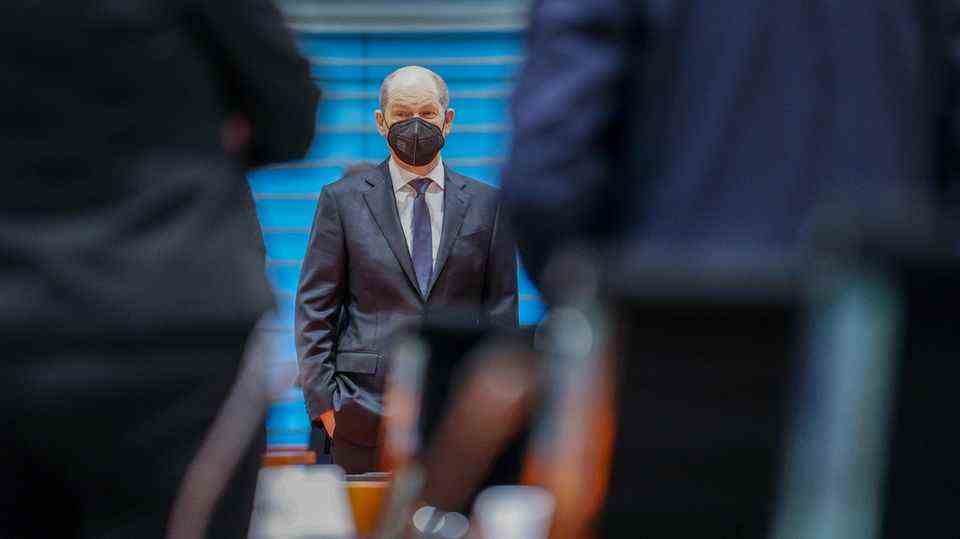Mood before state elections
A special showdown is looming in Saarland (and a bitter smack)
The challengers: Anke Rehlinger (SPD), Deputy Prime Minister, and Prime Minister Tobias Hans (CDU)
© Oliver Dietze / DPA
In a few weeks there will be elections in Saarland. It is a special mood test – which, according to the current status, could hurt a party in particular. It does not have to stay that way.
If there is one reliable certainty about moods, then perhaps this: They can turn quickly, sometimes into the complete opposite.
In the last federal election campaign, all three chancellor candidates could at some point assume that they would win the race. Initially Annalena Baerbock (Bündnis 90/Die Grünen), in between Armin Laschet (CDU, for the Union) and finally Olaf Scholz (SPD). All three experienced ups and downs, not least in the polls.
Baerbock put an abrupt end to their former high with blunders and allegations of plagiarism, Laschet laughed away his lead in the flood area and Scholz benefited above all from the mistakes of the others. For months, the SPD seemed cemented in the survey cellar, now Scholz is sitting in the chancellery.
Polls are snapshots of strength and weakness. In Saarland, the momentum lies with the SPD. However, it is clear that the Social Democrats can certainly have hopes for the state chancellery five and a half weeks before the state elections.
A mortgage for Hans
To the according to the current “Saarland trend”., 38 percent of Saarlanders would vote for the SPD and only 29 percent for the Union. This is remarkable for several reasons.
The smallest state in Germany has been governed by the CDU for 20 years and by a grand coalition led by the Christian Democrats since 2012. In the last state election, Annegret Kramp-Karrenbauer, contrary to the national trend, won more than 40 percent of the votes.
It was a resounding victory for Kramp-Karrenbauer – and a mortgage for her chosen successor in the office of Prime Minister, Tobias Hans, who is now standing for (re)election for the first time and, in the worst case, has to fear for participation in the government.
A lot can happen in five weeks (and probably will, but more on that later). But there is another special feature that can make Hans’ extraordinarily popular challenger and deputy Anke Rehlinger hopeful.
The SPD remains at the top in Saarland
There are several state elections this year. The Saarland will kick off on March 27th, in May there will be elections first in Schleswig-Holstein and then in North Rhine-Westphalia – in all of these countries the CDU runs the government business. Only in Lower Saxony, where the elections are due in the fall, does the SPD and Prime Minister Stephan Weil have to defend their supremacy.
Saarland can give the SPD hope, because only there do the Social Democrats seem to be maintaining the momentum that came from the federal election victory.
The seizure of the Chancellery gave the SPD a good boost in the polls, and the Social Democrats sat down shortly after the general election also in North Rhine-Westphalia clearly from the CDU. Now that the euphoria of the beginning is increasingly giving way to the inconveniences of everyday political life, the SPD is losing ground again. Both in North Rhine-Westphalia and in Schleswig-Holstein, everything seems to be possible again for the CDU. While the SPD in Saarland remains at the top of the mood.
Berlin is watching
Of course it doesn’t have to stay that way. On the one hand, SPD challenger Rehlinger must not allow herself any mistakes and, on the other hand, must hope that others will not make any – especially since Prime Minister Hans will not lay down his campaign weapons, for him it is all or nothing. In addition, the comfortable lead of the SPD could disappear due to all sorts of sensitive issues.
The current threat posed by Russia on the Ukrainian border is keeping the Germans spellbound – and, on an irregular basis, also former SPD chancellor Gerhard Schröder, who is in the pay of Russian gas companies and has accused Ukraine of “saber-rattling”. In addition, there is the struggle to introduce a general obligation to vaccinate, for which Chancellor Scholz has repeatedly advocated, but is increasingly being sidelined. A decision by the Bundestag, i.e. also a failure of the project, could be made practically parallel to the state elections in Saarland. And then there are the rising energy prices and high inflation, which are already becoming a problem for the SPD at federal level.
In Berlin, the vote will be followed with particular interest. After the federal election, the ballot also represents a first mood test – for the new federal government under Chancellor Scholz, but also for the Union in general and Friedrich Merz in particular, who as the new CDU party leader and Union faction leader is responsible for the opposition work.
How the showdown in Saarland ends cannot be said with certainty – the mood can change quickly. As of now, this could hurt the CDU in particular.




